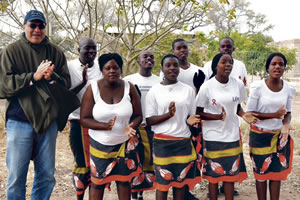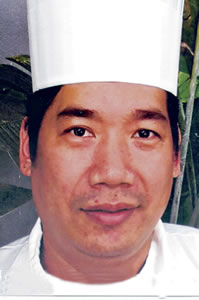Tourism: A Global Phenomenon

August 03, 2011 | Hawaiian Airlines Discount Share

|
Last month I had a once-in-lifetime opportunity to travel to South Africa for a vacation. I’ll admit I was looking forward to relaxing, to discovering a different culture and environment, and to visiting the homeland of a man I’ve long admired, Nelson Mandela.
While the trip met my every expectation, and more, what I also found inescapable was the substance of my work with the Hawaii Hotel & Lodging Association. By that I mean the prevalence and power of tourism in South Africa, a nation still emerging from centuries of colonial rule and decades of repressive apartheid.
It is an ordeal to reach South Africa. It took 10 hours to fly from Honolulu to New York City, then another 15 hours to reach Johannesburg. What I found was a country of breathtaking natural beauty and enormous economic potential. With a modern economy and good infrastructure, it now leads its African neighbors in social and economic development.
It faces formidable challenges, among them a 25percent unemployment rate, poverty, crime, HIV/AIDS, and uncontrolled in-migration from bordering nations.
The nation is rich in gold and diamonds, but here is the salient point: Tourism is today more important than gold to South Africa, employing more people, earning more in foreign revenue, and accounting for 8 percent of GDP.
In the past decade, international arrivals have increased tenfold, with no end in sight.The nation has embraced tourism.
We spent several days in the bush, in world-class lodging, where we observed animals in the wild. The industry employs local workers who know the animals and the environment.
Historic Capetown, along the Southern Coast, boasts clean, expansive beaches reminiscent of those along the Northern California coast. Table Mountain, the dominant geological feature of the region, is a preserve for native plants and animals. Robben Island, where Nelson Mandela and African National Congress activists were imprisoned, is a well preserved historic site serving as a powerful symbol that the quest for freedom and liberty often come at great human cost.

|
All of these qualities the scenic beauty, nature, history and culture are contributing to the remarkable growth of South Africa’s visitor industry.
Given these facts, on what basis would we in Hawaii conclude that tourism is anything other than a growth industry?
A rapidly growing global middle class is seeking travel, entertainment and relaxation.
Travelers today are attracted to destinations endowed with great natural beauty, warm climates and welcoming cultures.
Like Hawaii, South Africa demonstrates that a carefully and thoughtfully conceived visitor industry can reap significant rewards for many economies.
South Africa and Hawaii, in our own ways, offer models of unique, sustainable tourism that will benefit both our peoples for many, many years to come.
MUFI’S VISITOR HEROES
Shao Xiang Yang
Position: Sous Chef
Location: Waikiki Resort Hotel
Sous chef Shao Xiang Yang of the Waikiki Resort Hotel’s Ilima Restaurant is known for his management skills as much as his culinary expertise. An employee of the hotel since 1994, Shao assumed executive chef duties during a period when the restaurant had no one in that position. He promptly accepted the responsibility and turned a money-losing breakfast operation into a popular mealtime that now serves hundreds of guests a day. His day begins early and alone as he prepares for the morning rush. He took the time to create the restaurant’s response to a demand for black noodle, a Chinese-Korean fusion dish, and it’s since become a favorite on the lunch menu. Shao’s leadership and collaborative spirit have earned him the respect of co-workers, while his customer-oriented approach to food service has him eagerly seeking customer feedback, developing new dishes, and gaining the appreciation of guests.
Most Recent Comment(s):












